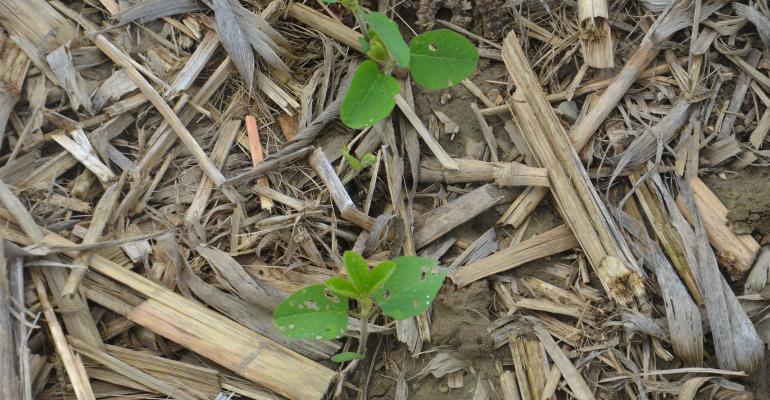Views vary on insecticide seed treatment in soybeans

Soybean Pest Beat: The CCA panel points out multiple factors to consider when deciding whether to use seed treated with insecticide.
Sep 27, 2021
Seed dealers are already asking for 2022 commitments, including if we want fungicides and insecticides on soybean seed. I have seen value from fungicide seed treatments. Are insecticide seed treatments worth the investment, or can I get by without them?
The Indiana certified crop adviser panel answering this question includes Traci Bultemeier, an agronomist with Pioneer near Fort Wayne; Jesse Grogan, a retired agronomist based in Lafayette; and Bryan Overstreet, an Extension ag educator for Purdue University Extension in Jasper County.
Bultemeier: This is a resounding yes! There are countless insects that are detrimental to root systems and shoot growth that are not seen until the plants are dead or missing. Secondary pests such as seedcorn maggots, wireworms and white grubs are leading causes of trouble. Seed-applied insecticide is well researched and is quite effective in protecting both corn and soybeans from these unseen pests, particularly in high-residue fields and fields where manure was applied.
Grogan: Soybean insecticide seed treatments are helpful in targeted or higher-risk situations but do not consistently return the investment as a general use product. Neonicotinoids as seed-treatment insecticides provide about three weeks of protection. They are useful in early plantings to control bean leaf beetle, seedcorn maggot, grub and wireworm feeding. They can also suppress soybean aphids in early stages, but are not effective when aphid populations increase and are most damaging later in the season.
Insecticide seed treatments are good when planting in fields that are returning from pasture or the Conservation Reserve Program. They help with insect pressure in fields that have had recent manure applications, or where green cover crops or green weeds are incorporated in the soil. Insecticide seed treatments generally experience most success in Midsouth and Southern states compared to Northern states.
Seed companies sometimes provide a guaranteed stand or replant seed for planting insecticide-treated seed, which is also an incentive for using them.
Overstreet: I feel that the fungicide treatment on early-planted soybeans can be very beneficial to the crop and to your pocketbook in many years. Once you hit the middle of May on no-till, and maybe even earlier on conventional-planted beans, I think those benefits disappear in most years.
I am old-school in my thinking and still am not sold on the concept of if the benefits outweigh the cost and other baggage that comes along with the insecticide treatment on soybeans. If you have had problems with seedcorn maggots in the past in fields where soybeans are going in 2022, it could be a benefit. But by the time many of the insects are a problem in soybeans, the amount of toxin left in the plant from the insecticide does not do much control.

